What social media is saying about the top five US-based grocers during the COVID-19 pandemic
Grocers are some of the only retailers continuing to operate on a near-normal schedule in these non-normal conditions. Though many have implemented slightly reduced hours to allow for adequate cleaning and restocking and many are now offering special hours for seniors and high-risk populations, we are still dependent on our local grocery stores to provide food and other essential goods for our families. Even in the event of a nationwide “shelter in place,” Americans would still be expected to make weekly trips to the grocery store to provide for these essentials.
With this in mind, we wanted to take a look at online social conversation around the top five grocery chains based in the US (Albertson’s/Safeway, H-E-B, Kroger, Publix, and Whole Foods)* as it relates to the coronavirus pandemic.
Spike in online conversation corresponds to the declaration of national emergency
Despite heavy news coverage dating back to January, social conversation related to COVID-19 and these grocers doesn’t spike until the declaration of a National Emergency on March 13th. Since then, the volume has leveled off to an average of around 8,000 posts per day and continues to decline, whereas prior to the declaration, there were fewer than 500 posts per day.
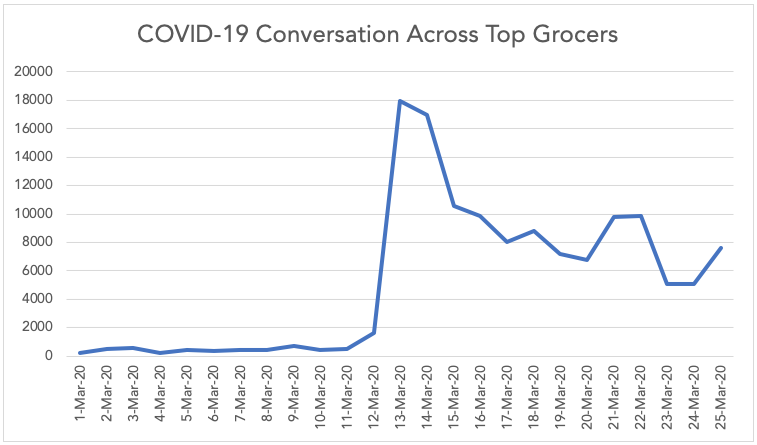
Key Metrics by Grocer (March 13–25)
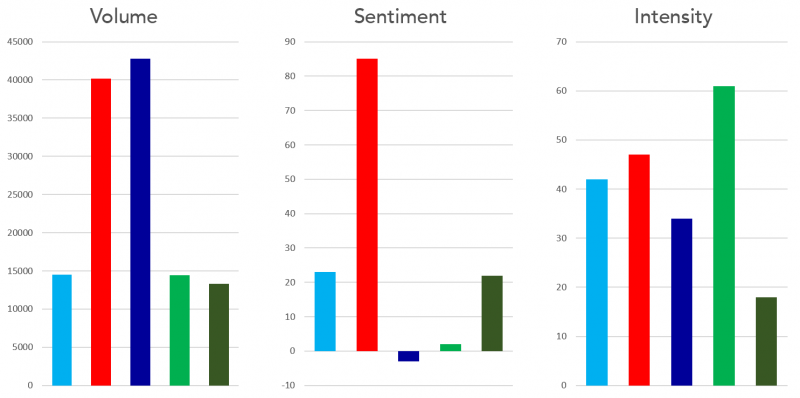

Consumers seek reassurance and support
In this time of crisis, consumers are worried. They are concerned for their family and friends, their jobs and their finances, their homes, and their way of life. On top of all that, empty grocery shelves caused by panic buying have people worried about issues with the grocery supply chain and shortages on essential items. Despite these fearful times, the messages that ring through the chaos are those of reassurance and support, as noted by the incredible reaction to H-E-B’s post on March 13th which received over 36,000 likes and was retweeted over 14,000 times!
H-E-B’s strong volume, sentiment, and intensity metrics are further bolstered by reports of the company’s test simulations and preparation**, posts from appreciative customers, stories of having Mariachi bands in-store to ease tensions, and offering special delivery support to seniors.
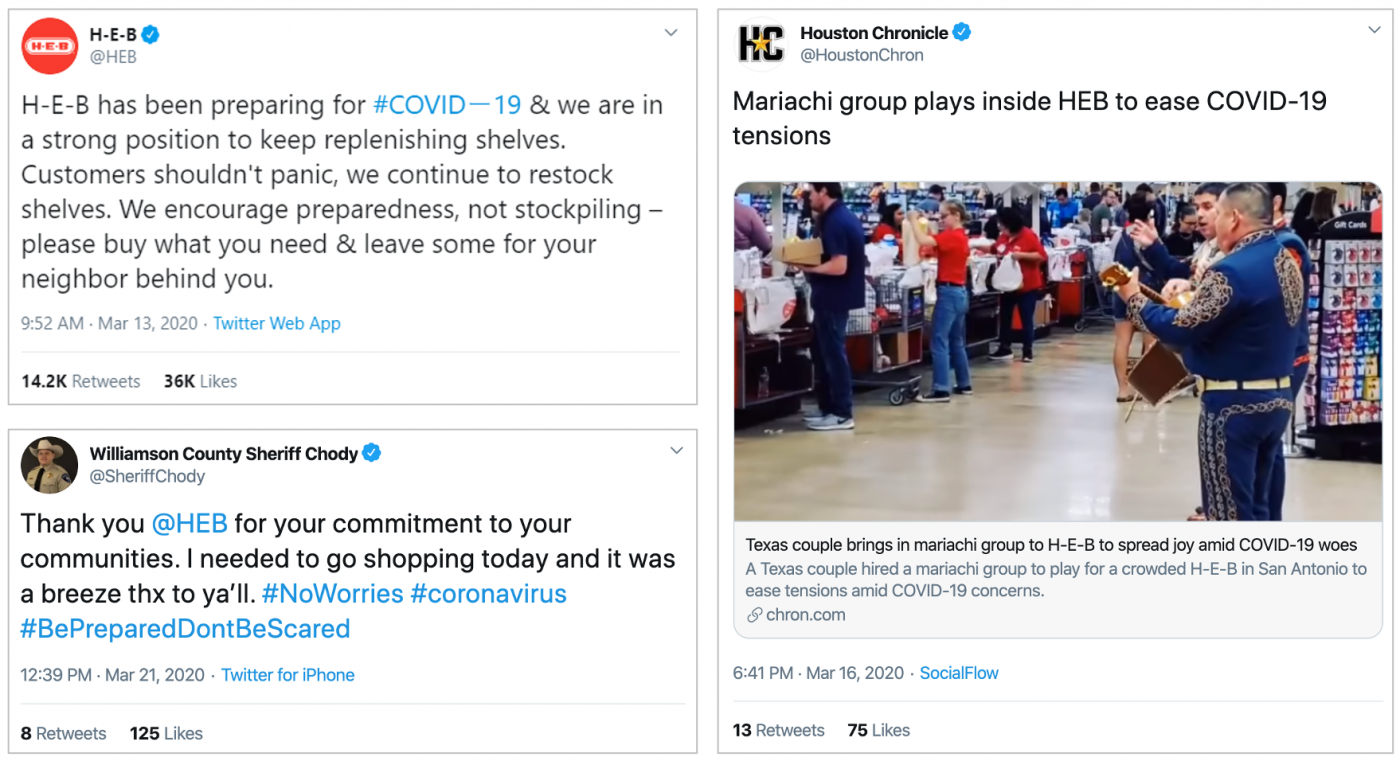
Additionally, many chains are being praised for the measures they are taking to protect both customers and employees, including plexiglass barriers added to checkout lanes called “sneeze guards,” special hours for seniors only, and social distancing markers in checkout lines.
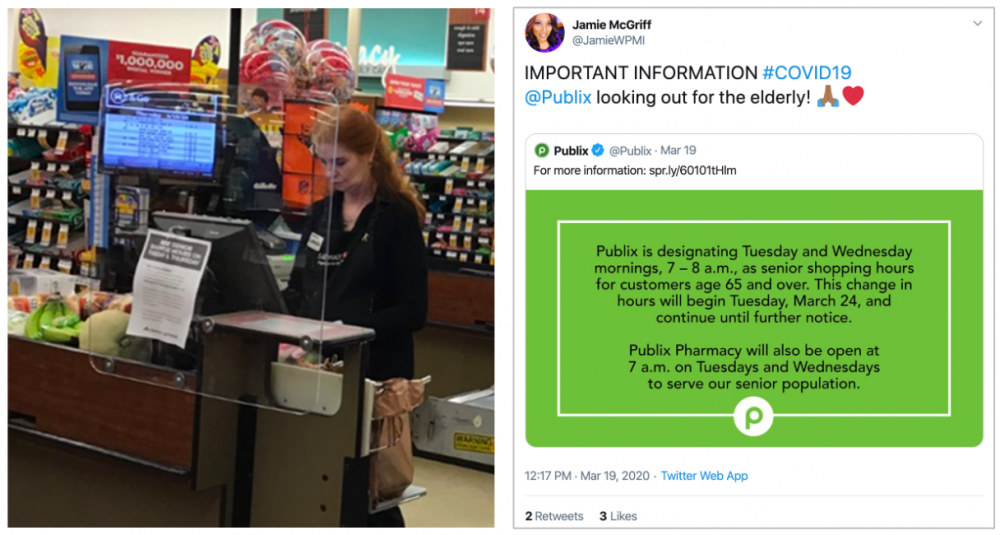
Image from: KGW8: Safeway, Albertsons add safety measures to help shoppers, clerks avoid coronavirus
A lot of talk about nothing on the shelves
We would be remiss not to mention the large volume of social conversation that continues around out-of-stock items and empty grocery shelves. Many are sharing pictures of the aisles at their local stores, both to alert their neighbors and to let grocers know that restocking efforts need to continue.
Selfless concerns abound
Since grocery stores are one of the only places left for consumers to go beyond their homes, one might think there would be a lot of shared concern for transmission of COVID-19 while shopping. However, this conversation hasn’t tipped the scales on social media (though, that’s not to say this concern doesn’t exist). What shoppers are chatting about is a concern for the grocery employees who are now viewed as on the front lines of this pandemic. Whole Foods (along with Amazon) can’t escape negative press for not offering their employees sick leave, and many are advocating for hazard pay.
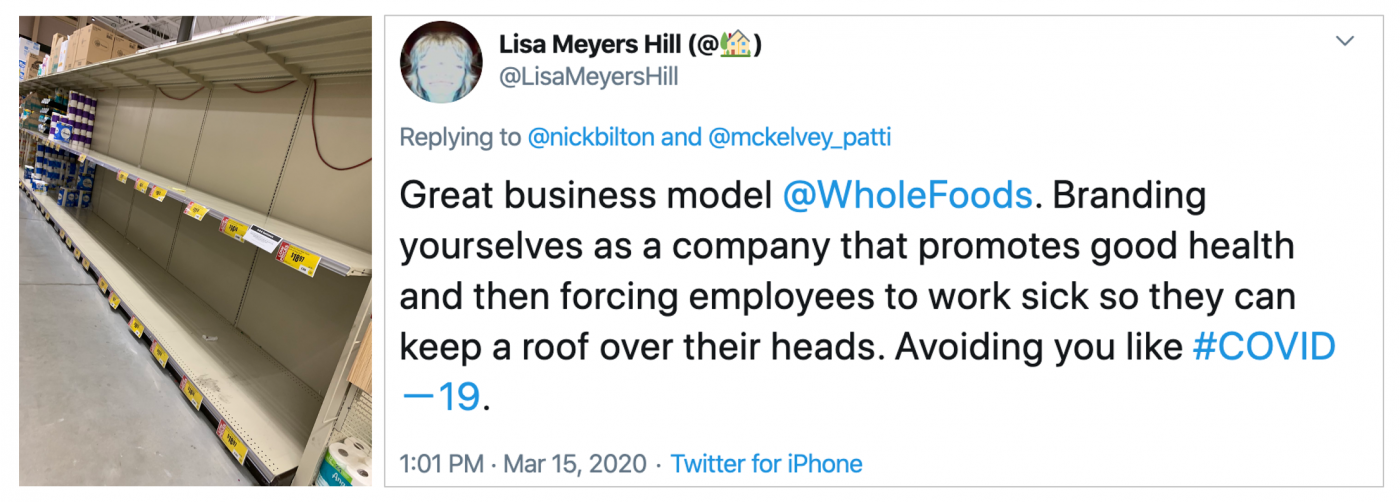
Image from: @CruzRam2122
Front Line Employees Speak for the Brand
One final word of caution before we sign-off, it’s important to be aware that not only during times of crisis, but at all times, front line retail employees speak for the brand. The interactions they have with customers can make or break an individual’s impression of an entire retail chain. Through this epidemic, there have been great examples of both what to do and what not to do.

Grocery chatter overall
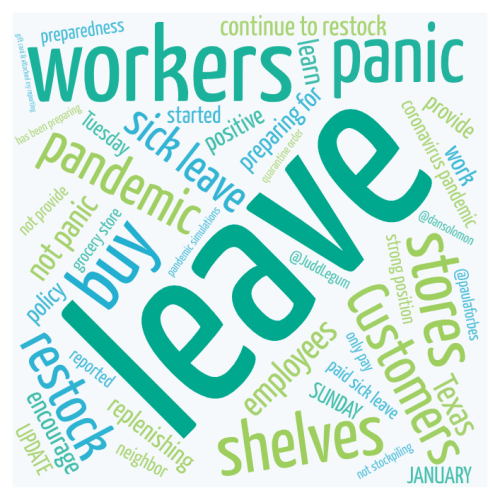 Without a doubt, grocery chains are closely connected to the coronavirus pandemic. As mentioned earlier, consumers are concerned about their ability to keep shelves stocked with essentials and other items that have been bought-up in pandemic panic buying. Additionally, there is a great showing of concern and support for the employees, cashiers, shelf stockers, etc. who are seen as being on the front lines, putting themselves in harm’s way to help keep families fed.
Without a doubt, grocery chains are closely connected to the coronavirus pandemic. As mentioned earlier, consumers are concerned about their ability to keep shelves stocked with essentials and other items that have been bought-up in pandemic panic buying. Additionally, there is a great showing of concern and support for the employees, cashiers, shelf stockers, etc. who are seen as being on the front lines, putting themselves in harm’s way to help keep families fed.
Thank you to all of the grocers and grocery personnel who are working hard to keep shelves stocked, aisles clean, and provide special, innovative accommodations to keep your communities fed. We are grateful for your efforts!
- covid-19
- social media listening

